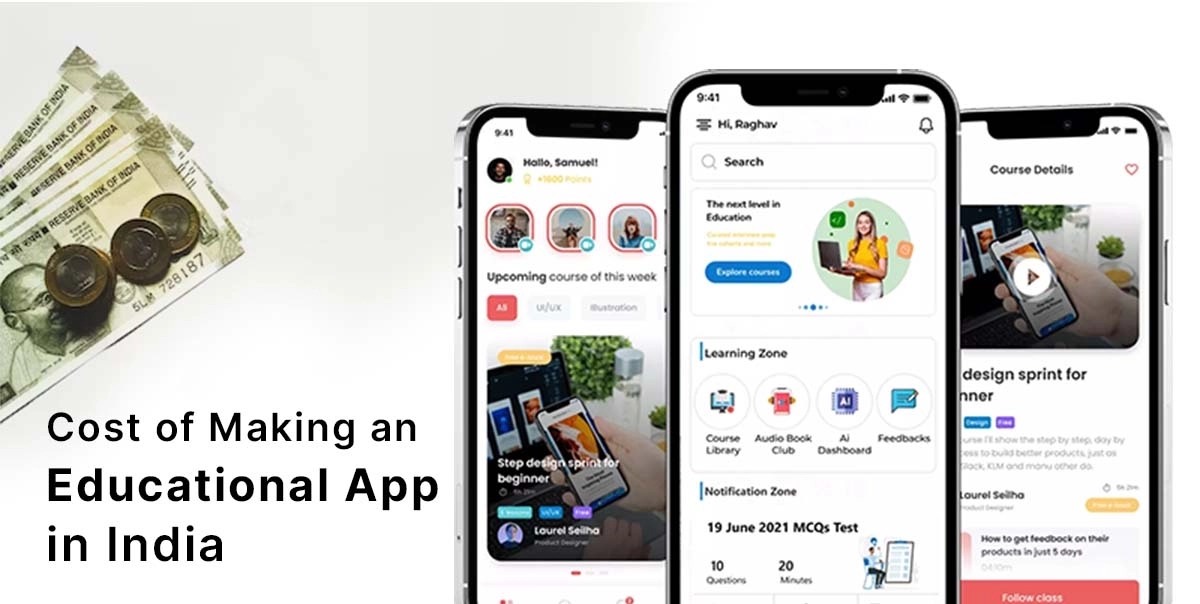Guide to Quality Assurance in ASP.NET Development: ASP.NET QA and Development Testing by Duplex Technologies

Posted By : Adarsh Mishra, Posted Date : Aug 03, 2024
Introduction to Quality Assurance in ASP.NET Development
In the sphere of web development, ASP.NET means an imposing framework underpinning the development of solid, scaled, and high-performance applications. Being a brainchild of Microsoft, ASP.NET offers the greatest possible versatility in its pack of tools and libraries. As such, it's an excellent platform for creating dynamic web applications. However, for any ASP.NET project to succeed, the abilities of the coder are simply not enough. Quality assurance and rigorous testing guarantee a final product that not only functions well but is this effort brought from nowhere, stands the light of day with full beams on it—functionally correct, reliable, and secure. At Duplex Technologies, we strongly believe in giving our clients the best ASP.NET solutions, which can only turn up as a result of an exhausting quality assurance and testing process for each of the projects handled. It's a commitment to ensure nothing but the best in quality and performance.
Table of Contents
Understand ASP.NET Development
ASP.NET is a versatile framework used in dynamic web application development. ASP.NET is accompanied by many tools and libraries that accelerate development and deployment. Some of the strong points for ASP.NET include the following: multi-language support, strong safety features against attacks, and high performance.
ASP.NET supports a number of programming languages, such as C#, VB.NET, and F#. These languages offer flexibility to the developer during program writing. It has a rich set of controls and libraries that make the development process easier for the developer. With this functionality, they can just concentrate on developing business logic and leave off worrying about low-level coding. Besides, it has a lot of inbuilt security mechanisms, like authentication and authorization, which are necessary to protect applications from most of the common security threats.
Duplex Technologies harnesses the power of ASP.NET to deliver customized web applications that are tailored to meet the requirements of clients in real time. Our proficient team of developers exploits that power enabled through this framework to develop apps that exude user-friendliness and high performance. With expertise in ASP.NET—right from a simple website to complex enterprise applications—we help provide scalable, maintainable, and high-performance quality solutions.
Why Quality Assurance is Important in ASP.NET Development?
Quality Assurance (QA) is an important part in the process of software development. In terms of ASP.NET development, it ensures that the program corresponds to the requirements set forth and functions under a whole range of conditions. Proper discovery and development process should be followed in order to identify defects early in the development cycle. This will definitely avoid expensive fixes after the final delivery of the product.
For environments run by ASP.NET, QA plays a crucial role in delivering applications that are reliable at runtime and offer the quality of service users would expect. That means, besides doing what it's supposed to do, the final product is smooth and easy to use. These include a number of activities that underline our commitment to quality, from needs analysis and test planning down to the execution of tests and defect management.
QA Methodologies and Practices in ASP.NET Development
The ASP.NET development has various QA methodologies, each having its system of practices and tools. At Duplex Technologies, a combination is adopted to get better coverage and work more effectively.
-
Agile QA: Iterative development and continuous testing are emphasized. It calls for close collaboration between developers and testers across the development cycle. This can identify problems at an early stage and take immediate remedial action. In order to adjust QA activities during various phases of development, Agile QA checks on quality right from the beginning and never allows it to slack at any given time. Deployment, in contrast to delivery, is the latest phase for process engineering and quality checks.
-
Waterfall QA: Here, traditional development follows the process where QA activities are executed only after all other phases of the project have been carried out. Much less flexible than Agile, Waterfall QA can execute thorough testing of every single piece of the fully developed application. When to use the waterfall model: When your project has strict requirements and is less likely to undergo modifications throughout the development process.
Best Practices for the Implementation of QA
-
Requirements Analysis: This is done to understand all the necessary details in the project requirements and to create an effective test case in writing them up. This involves working with the stakeholders to ensure that everybody's functional and non-functional requirements are put down accurately in writing at one place together. Anything missed out will later on cause flaws, so be as concise as possible. Well-written use cases will also turn out to be a very valuable reference for developers.
-
Test Plan: Prepare an integration test plan that includes the objective, scope, and resources, and also mention the timetable for test activities. Clearly stated, a test plan becomes a guide for the whole QA process. This would ensure that all the aspects of the application were tested in complete detail and all the parts entering version control software were indeed received as they came after they were submitted.
-
Test Case Development: For every requirement and design spec, write up rigorous test cases. A test case body shall hold representations of all conceivable environment conditions that may impact the app, including edge cases. Without this your application may in some instances not work as expected4. This not only refers to the physical conditions and environmental settings that the app will be run in but also unforeseen problems which may develop inside any countable period after development begins.
-
Test Execution: Run the tests based on the test plan and document the results. During the execution of the tests, the behavior of the application should be monitored, any issues met should be recorded, and verification should be made that the expected output is obtained.
-
Defect Management: Trace the problems to its origination to trace whereabouts so that the defects can quickly be gotten rid of to prevent their occurrence. Identification of defects based on their severity, prioritizing and fixing them, getting them re-tested.
Tools and Technologies in ASP.NET Development for QA
-
Selenium: An open-source, free tool for automated testing of Web pages. It is developed in such a way that it supports multiple programming languages; hence it is possible to integrate with other tools to provide robust test-automation frameworks.
-
JUnit/ NUnit: Unit-testing frameworks for Java and .NET respectively. It gives a formal way of writing and executing unit tests, making sure that each portion of your software is working correctly.
-
Jenkin: It is a continuous integration tool to automate build and testing. Jenkin can automate repetitive tasks, making sure that the changes made in the code get tested consistently for its integrity and are well integrated with other components of the software system.
-
JIRA: It is one of the famous defect tracking and project management tools. JIRA provides a central location where QA activities can be conducted, defects can be tracked and team members can be collaborated.
Types and Techniques of ASP.NET Development Testing
Testing in ASP.NET development is a multidimensional, collective activity that requires using many test types to guarantee that it is strong and reliable. Each type of test has its own purpose and contributes to the general quality of the application.
-
Unit Testing: This confirms the behavior of individual components or units of the application so that they work correctly. In unit tests, only small testable parts are focused on, for example, methods or functions. By testing correctness in individual units, a developer will ensure that application building blocks are good building blocks.
-
Integration Testing: These test whether different modules or components of the same application work as expected to each other; this is integrative testing. This type of testing is very important in finding problems where single units interface with others. Integration testing will assure that an application acts as one entity.
-
Functional Testing: Ensures that software meets all specified business requirements. Testing of this functionality of the application is done by providing certain inputs to the application and then verifying the results against what we expect from it by knowing its development and testing processes. This would validate that the application is doing what it is supposed to do in a proper way to meet the needs of the user.
-
Performance Testing: Performance testing is a process that measures the performance of program resources under different conditions, either due to high loads of users or other stressed system resources. This form of testing aims to highlight the bottlenecks and assure the program in handling the predicted user traffic. Performance testing will involve load testing, stress testing, and scalability testing for resiliency, stability, and capacity of the application.
-
Security Testing: Security testing tries to find out if there's anything in the application that has some weakness, providing an opening for the mal-user. For instance, security tests check for common security problems like SQL injection, cross-site scripting. Security testing ensures that the application resists various attacks and that confidential data is kept safe.
How to Choose the Right Development Partner for Your ASP.NET Project
Choosing the right development partner is one of the critical success factors in ensuring an outcome that meets your ASP.NET project requirements. Here are the key factors:
-
Experience and Expertise: Seek a company with extensive experience in ASP.NET development and deep knowledge of the capabilities the framework can do. A qualified and professional development partner will be able to showcase successful past projects and deal with challenging requirements on your behalf.
-
Quality Assurance Practices: Ensure that the development partner has appropriate QA procedures to provide quality and reliability to applications. This will ensure end-to-end and quality testing and assurance for quality product construction.
-
Customer Reviews: Whatever maybe the case, on this webpage, we are not going to mention testimonials or accolades given by individuals who have sought Services. The search for reviews and case studies regarding business services may give you a glimpse of this management company. Try to find out if the development partner has successfully conducted projects and has satisfied clients.
-
Communication and Collaboration: Important in any organization. Selecting a partner who believes in openness—keeping everybody updated every step of the way through the development process—and has a collaborative attitude is necessary for this openness in terms of open channels of communication and an inclusive culture that will, no doubt, assure that your project stays on track to hit its marks.
At Duplex Technologies, we provide quality solutions with a focus on ASP.NET development. In our company, we do incorporate elaborate QA and testing in order to succeed every time with our projects. We closely work with clients, actively participating in their projects and seeking every opportunity to understand their requirements, give updates as needed, and deliver their goals.
The Bottom Line
Any ASP.NET development project requires testing and quality assurance to succeed. At Duplex Technologies, we have applications that are reliable, secure, and easily accessible to high standards in this regard with the proper testing procedures that we put them before a release—be it building new functions or revising existing ones. Being strict about thorough testing and quality assurance itself allows us to deliver applications that perform well in real-world conditions, thereby exceeding the expectations of our customers.
You may be just about to start off from a blank slate, or if something already exists, then want it improved upon-whether the latter involves remodeling an old building, extending a current project, or embarking on new construction. Be it brand-new development or making changes in an already grown-up house, our expert team at Duplex Technologies is pretty sure to help you achieve your goals. The high quality of work and full-scale application of QA and testing practices in ASP.NET development ensure that you get functional, reliable, and protected solutions. Feel free to contact us today and learn more about how we can support your ASP.NET development needs.















